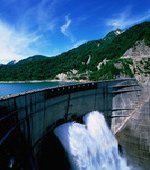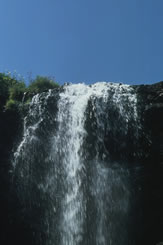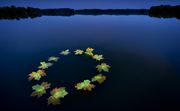 The necessity to integrate projects to develop technology together to save water and minimise environmental effects
The necessity to integrate projects to develop technology together to save water and minimise environmental effects
Milagros Couchod (secretary general of the Energy, Environmental and Technological Research Centre) wants to recover lost time as well as work with one eye on energy for the next century. This is her vision of energy development.
As regards energy or sustainability, do we not call a spade a spade?
No, and public opinion is uninformed. For example, all energy sources are clean – sun, water and radioactivity are present in nature and can lead us to sustainable energies. The problem lies in the technology we use to extract the energy from the source, which can be appropriate or completely degrading. Energy does not pollute.
So, we have been using technology incorrectly up to now…
We are using technologies that do not in the least take into account their impact on the medium and in two or three generations we have almost completely depleted the supply of fossil fuels. This is ridiculous and it happened because we thought they were the cheapest and most immediate. We have not considered sustainability.
A waste together with the technology gap – can this be recovered from?
Yes, we have lost nearly 30 years and now there is the oil crisis and ecological awareness forces us to race against the clock to make back the time lost. The positive side is that in these years, computing and telecommunications have advanced, but, even so, the effort required of us is enormous. The United States and Europe are doing very important work in energy research and the environment, Spain also. What is happening is that they are still working separately on water and energy – with separate administrations and funds. We have to move towards integrated projects to develop technology together to save water and minimise environmental effects.
You head up CIEMAT, one of the most active research organisations. What energy sources are you focused on?
We are working on all energy sources: in solar – the platform in Almería and all the consolidation technology that will make it possible for operational plants with greater power and output to exist in 15 years. Also in wind and mini-wind energy. In Soria, we have a biomass centre where we quantify the power and output that crops could provide us. We are also studying bio-climatic architecture – the optimisation of materials and construction. Of course, we are continuing to work on nuclear fusion which could be the solution by the end of the XXI century.
Nuclear power still creates technological and social problems.
One of the areas of study is the elimination of the waste: in Europe, technology already exists to transform it. Another area is that of safety in nuclear power stations: we are working with countries like France and Russia – with greater experience – to make the stations completely safe and the waste production controlled. The current reactors are not sustainable but they will be in the future and society will understand this. If it is explained that there is no risk, people will accept it.
Why do positions for and against the use of any one energy change?
The truth is that the importance of hydroelectric energy in the sessions in the Thematic Week has surprised me. A few years ago, dams were neither valued nor funded and now we hear heads of various countries basing their energy policy on water as a non-polluting energy and one that does not consume water because it returns it to the river. Of course there are negative effects, but they have to be of value because they also regulate the flow and avoid floods. The island of Hierro has a project that combines hydroelectricity and wind power and the dams act as energy storage facilities. This project could be applied to the reservoirs on the peninsular.
You are talking about research for which there is a lack of ground work.
The data regarding water consumption
for energy generation and of energy for the water cycle are old. A
project is in motion to create the data jointly: we will validate them
and we will give them to those making plans so they know how much water
and how much energy are used. The responsibility for leading this type
of project lies with the administration, but now it is not possible to
work alone in one research centre – joint work between administrations,
companies and researchers is needed, and there must be an interchange
of knowledge from the start.

| Contact information | n/a |
|---|---|
| News type | Inbrief |
| File link |
http://www.expozaragoza2008.es/Pressroom/News/seccion=44&idioma=en_GB&id=200809120018.do |
| Source of information | Expo Zaragoza 2008 |
| Subject(s) | ENERGY , NATURAL MEDIUM , POLICY-WATER POLICY AND WATER MANAGEMENT |
| Geographical coverage | International |
| News date | 19/09/2008 |
| Working language(s) | ENGLISH |
 you are not logged in
you are not logged in





